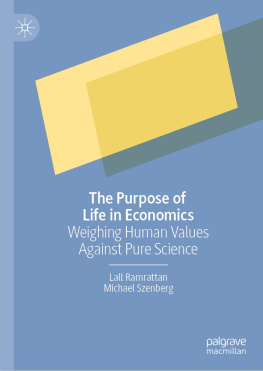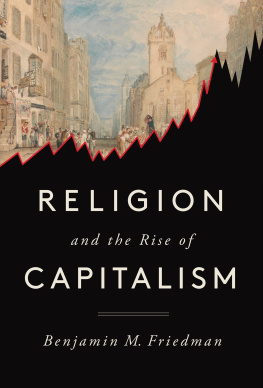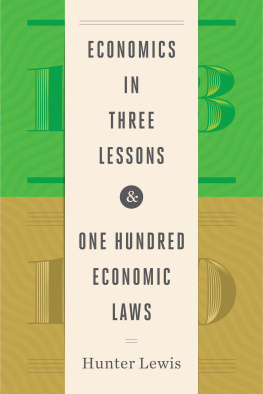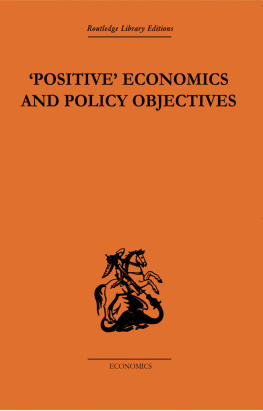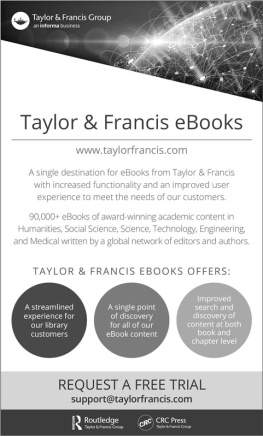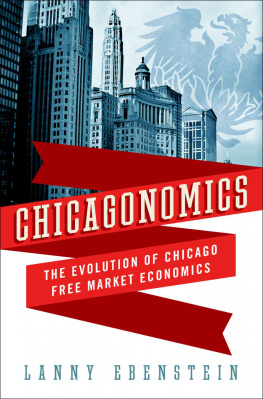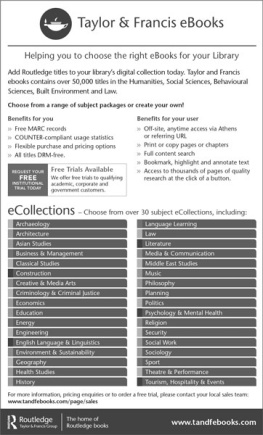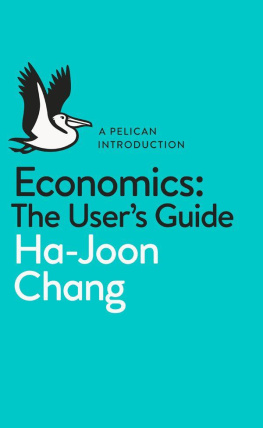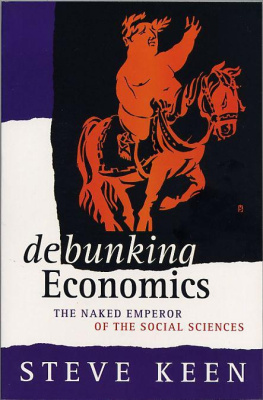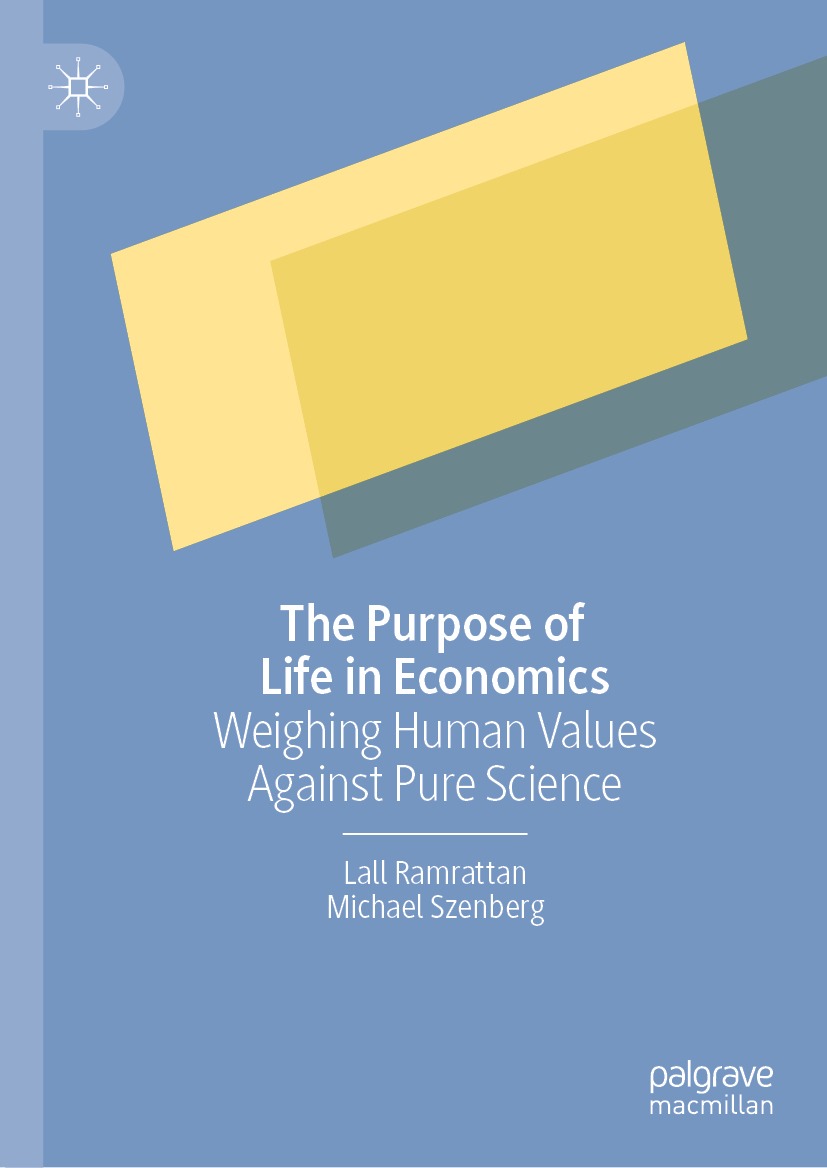Lall Ramrattan and Michael Szenberg
The Purpose of Life in Economics
Weighing Human Values Against Pure Science

The Palgrave Macmillan logo.
Lall Ramrattan
University of California, Berkeley Extension, Antioch, CA, USA
Michael Szenberg
Touro College and University System, New York, NY, USA
ISBN 978-3-031-17064-5 e-ISBN 978-3-031-17065-2
https://doi.org/10.1007/978-3-031-17065-2
The Editor(s) (if applicable) and The Author(s), under exclusive license to Springer Nature Switzerland AG 2022
This work is subject to copyright. All rights are solely and exclusively licensed by the Publisher, whether the whole or part of the material is concerned, specifically the rights of translation, reprinting, reuse of illustrations, recitation, broadcasting, reproduction on microfilms or in any other physical way, and transmission or information storage and retrieval, electronic adaptation, computer software, or by similar or dissimilar methodology now known or hereafter developed.
The use of general descriptive names, registered names, trademarks, service marks, etc. in this publication does not imply, even in the absence of a specific statement, that such names are exempt from the relevant protective laws and regulations and therefore free for general use.
The publisher, the authors, and the editors are safe to assume that the advice and information in this book are believed to be true and accurate at the date of publication. Neither the publisher nor the authors or the editors give a warranty, expressed or implied, with respect to the material contained herein or for any errors or omissions that may have been made. The publisher remains neutral with regard to jurisdictional claims in published maps and institutional affiliations.
This Palgrave Macmillan imprint is published by the registered company Springer Nature Switzerland AG
The registered company address is: Gewerbestrasse 11, 6330 Cham, Switzerland
To my wife, Noreena, my kids, Devi, Shanti and Rajan, Hari and Mena, and Rani and Jonathan, and my grandchildren, Brian, Sabrina, Aditi, and Abhishek, and Mia, and my great-grandchild Anna. I will love them forever.L.R.BH
Dedicated to the memory of my sister, Esther, for bringing me to these shores; to the memory of my father, Henoch, for his wisdom and to my mother, Sara, for giving birth to metwice; and my grandparents, who died on Kiddush Hashem, Abraham Mordchai and Feigel Rosensaft, and Itzhak Meir and Chava Szenberg, to my children, Marc and Naomi Kunin, Avi and Tova Szenberg; to my grandchildren, Chaim and Elki Herzog, Moshe and Batya Shain, Nachum and Devorah Wolmark, Chanoch, Ephraim, Ayala and Menachem Pfeiffer, and Yaakov Nosson, and to my great-grandchildren, Chanoch, Faigale, Moshe, Avigdor Mordchai, Chaya Avigail, Yaakov, and Chaim Baruch; and to my wife, Miriam.M.S.
Preface
The book calls for a broader purpose for economics than a mere means to ends analysis. In current practice, economics is focused too minutely. Although Adam Smith, the father of economics, was working with a vision of the economic process which allows the practitioners to think economic problems through, not in separate bits, but together, as explained by Hicks (Hicks, 1983, p. 6), his approach is considered self-centered. While humans are endowed with multiple faculties, Smith honed in on only the one that will produce plentiful revenue for themselves, and to supply the nation with sufficient revenues for public services. Such a goal assumes inequality, situates morality on greed, and does not impute a true social cost of production, particularly of the environment. In times of crises, Smiths vision is not consistent with expenditures on public works and institutions, which are in the interest of the individual (Robbins, 1976, p. 7).
David Ricardo had at heart the distribution of output. He believed that the laboring classes should have a taste for comforts and enjoyments, and that they should be stimulated by all legal means in their exertions to procure them (Ricardo, 2004, p. 100). He was particularly concerned that this goal should not be achieved by a policy of reducing the population, but not for the reason that Scrooge gave for reducing the surplus population. Rather, he was concerned that such a policy will reduce production and therefore defeat the purpose.
The philosopher and economist, John Stuart Mill, sought a goal that would humanize economics. He stood on the shoulders of Jeremy Bentham and David Ricardo, on utility theory and distribution theory, to achieve that purpose. With regard to utility, he held that the sole evidence it is possible to produce that anything is desirable is that people actually do desire it. If the end which the utilitarian doctrine proposes to itself were not, in theory and in practice, acknowledged to be an end, nothing could ever convince any person that it was so (Mill, 2001 [1863], p. 25). Mill improved utilitarianism by distinguishing higher from lower pleasure. The test for this is that one who experiences both would prefer the higher pleasure thing. The higher pleasure may require a higher education or wisdom for it is better to be Socrates dissatisfied than a fool satisfied (p. 13).
With regard to distribution, Mill advocated a special brand of equality, which on the one side has the theory of dependence and protection, and other that of self-dependence (Mill, 1909, p. 753). As is expected of every human, Mill sanctioned the latter. The poor should not depend on the rich in their thinking, morality, or religion. In the economic sense, he regarded relation between protector and protected as belonging to a rude and imperfect state of the social union (p. 755). The modern poor can be self-dependent because they have the laws to protect them, and where laws do not reach, manners and opinion protect them (Ibid.).
The classical economists, Alfred Marshall, wrote that economics has to use every method known to science. And as to scopeeconomics is a study of mans action in the ordinary business of life. It inquires how he gets his income and how he uses it (Marshall, Volume One, 1996, pp. 299300). We are told that the Mecca of the economist lies in economic biology rather than in economic dynamics economics (Marshall, 1982 [1890], p. xiv). In a letter to John N. Keynes (September 20, 1890), he gave a more general view of his method, when he wrote that I think that the right order is first to emphasize the mutual dependence of induction & deduction, and afterwardscollecting, arranging, and narrating facts (Marshall, 1996, Volume One, p. 339). It reads much as Aristotles definition that studies those qualities which are held in common by all the members of the class. And afterwards to study special qualities of each individual in it (Aquinas, 1967, p. 55).
Marshall is also known for favoring analysis over theory, as when one analyzes all the forces pushing balls in a bowl. But in his analysis, he invokes the ceteris paribus method that changes one variable while holding all others constant, as opposed to the mutatis mutandis method where all variables adjust to the said change. The latter application finds a home in linear programming in economics. A major problem with Marshallian economics is in pretending that perfect competition does a good enough job in fitting the real world and he was delaying the understanding of general equilibrium (Samuelson, 1972, Vol. 3, p. 26).

